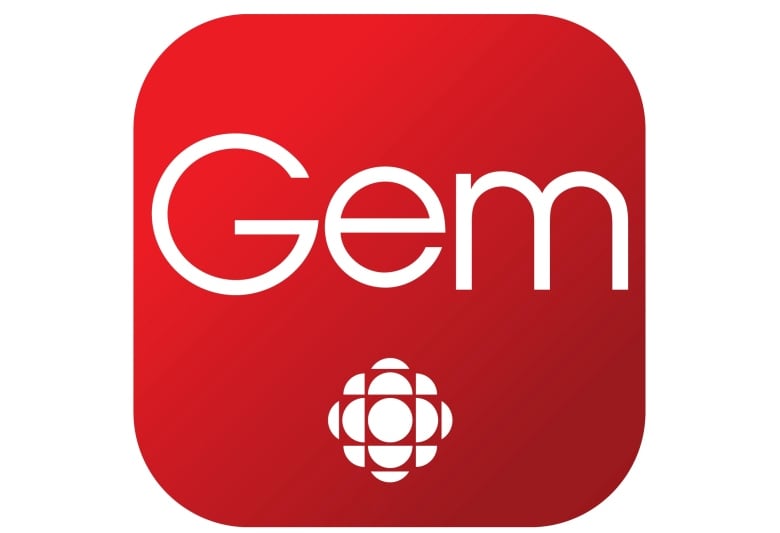Business
HVAC scams and how to stop them; why can't retail workers get N95 masks? CBC's Marketplace Cheat Sheet – CBC News
Miss something this week? Don’t panic. CBC’s Marketplace rounds up the consumer and health news you need.
Want this in your inbox? Get the Marketplace newsletter every Friday.
Salespeople are using sketchy tactics to sell HVAC contracts. We caught one in the act
This week, Marketplace and Go Public are teaming up to expose the tactics used to trick consumers into overpriced long-term rental contracts for new heating and cooling equipment — and more.
Our team rigged up a test house with hidden cameras to find out what would happen when a sales representative for a company that has a history of complaints came to inspect the hot water tank.
The veteran HVAC expert we asked to inspect the tank before Ontario Green Savings arrived found nothing at fault. But when Axel Hermosa — a commissioned sales manager at the company — knocked on the door, we heard a very different story.
“You have to get it replaced within the next six days,” he said, explaining that once the tank hits 10 years, insurance will no longer cover any damage. “So if anything happens, I’m liable. I’ve seen the tank … Insurance won’t cover that s–t.”
But when we checked the home’s specific insurance policy, as well as with several other insurance companies and the Insurance Bureau of Canada, all said they do cover damage caused by tanks older than 10 years.
Hermosa also said the new tank would cost about $50 more a month than the current contract, but would be so efficient it would save money in the long run. Many consumers who shared their experience with CBC never saw those savings. Read more
That’s just one of the slick sales tactics you’ll want to watch out for. To see the rest, watch Marketplace’s full investigation.
Exposing deceptive sales tactics used to suck people into unfair and overpriced HVAC contracts. And insiders reveal the new ways they get you to sign up for other home equipment too. 22:30
Marketplace update: Instacart edition
After last week’s Marketplace investigation revealed hidden fees and markups for some grocery items on Instacart from Loblaws and Costco, we heard from many of our viewers about their own experiences with online grocery delivery.
But that wasn’t the only reaction to our story.
Following our investigation, the NDP sent a letter to the Competition Bureau asking the commissioner to investigate the cost of third-party grocery delivery apps like Instacart.
“With the speed at which the newest variant of COVID-19 is spreading, more Canadians than ever before are isolating and are forced to rely on grocery delivery services like Instacart,” said federal NDP critic for industry and MP Brian Masse in a release.
“Canadians who are doing the right thing by staying home to keep their communities safe should not be punished by third-party apps who are cashing in on the situation.”
The party also sent a letter to the chair of the Industry Committee asking for the committee to reconvene to discuss mark ups by third-party apps, among other agenda items.
We’ll keep you in the loop with any updates on this story, and in the meantime, catch up on our full investigation into Instacart below.
Investigating hidden mark-ups and missed sales on Instacart, plus testing HelloFresh, Chefs Plate, and Goodfood. 22:30
Many front-line health-care workers are getting N95-style masks. Why not those who work in retail?
In Omicron’s wake, many regulations have been changed quickly to better protect workers.
For example, most front-line health-care workers in Ontario now have to wear N95-style masks, which filter the vast majority of dangerous coronavirus particles.
But for people who work with the general public, some of these changes are lagging.
At most grocery stores, there’s still no mandate for the widespread use of N95 or equivalent masks, despite mounting evidence that cloth masks and other inferior options do little to slow the spread of the wildfire that is Omicron. Read more


Thousands of suspected injuries tied to breast implants revealed in manufacturer data dump, CBC analysis finds
Health Canada was left in the dark for years about thousands of suspected injuries and complications related to breast implants — including multiple mentions of a rare cancer — that manufacturers failed to report.
A CBC data analysis found that more than half of the 5,990 new reports are suspected injuries, while the rest are classified as having the potential for injury or death should they reoccur, also called near misses.
The data suggests manufacturers received some reports as early as 2000, but they weren’t submitted to Health Canada’s database until nearly two decades later.
The organization launched an investigation after reviewing breast implant manufacturer Allergan’s 2017 annual report, which mentioned breast implant incidents that did not appear in Health Canada’s database.
When asked by CBC News to provide more context on this under-reporting and Health Canada’s inspection, Allergan declined to comment. Read more
Back in 2018, a Marketplace hidden camera investigation revealed how some plastic surgeons gloss over the health risks of breast implants during their sales pitches.
What else is going on?
China, Philippines suspend beef imports from Canada after case of bovine spongiform encephalopathy
The disruption has not had any noticeable impact on Canadian prices, says executive vice-president of the Canadian Cattlemen’s Association.
Are homeowners liable for slips on icy sidewalks?
The classic Canadian legal conundrum is connected to the issue of what it means to be a good neighbour.
Dewalt Jobsite Pro Wireless Earphones recalled due to burn and fire hazard
Immediately stop using the recalled DEWALT ® Jobsite Pro Wireless Earphones.
Certain Dole and President’s Choice brand salad products recalled due to listeria
Click to review the list of recalled products.
Marketplace needs your help




Have your batteries leaked or stopped working before you expected? We want to hear from you! Send us your photos and tell us more at marketplace@cbc.ca.
Watch this week’s episode of Marketplace and catch up on past episodes anytime on CBC Gem.
Business
Why the Bank of Canada decided to hold interest rates in April – Financial Post
Article content
Divisions within the Bank of Canada over the timing of a much-anticipated cut to its key overnight interest rate stem from concerns of some members of the central bank’s governing council that progress on taming inflation could stall in the face of stronger domestic demand — or even pick up again in the event of “new surprises.”
“Some members emphasized that, with the economy performing well, the risk had diminished that restrictive monetary policy would slow the economy more than necessary to return inflation to target,” according to a summary of deliberations for the April 10 rate decision that were published Wednesday. “They felt more reassurance was needed to reduce the risk that the downward progress on core inflation would stall, and to avoid jeopardizing the progress made thus far.”
Article content
Others argued that there were additional risks from keeping monetary policy too tight in light of progress already made to tame inflation, which had come down “significantly” across most goods and services.
Some pointed out that the distribution of inflation rates across components of the consumer price index had approached normal, despite outsized price increases and decreases in certain components.
“Coupled with indicators that the economy was in excess supply and with a base case projection showing the output gap starting to close only next year, they felt there was a risk of keeping monetary policy more restrictive than needed.”
In the end, though, the central bankers agreed to hold the rate at five per cent because inflation remained too high and there were still upside risks to the outlook, albeit “less acute” than in the past couple of years.
Despite the “diversity of views” about when conditions will warrant cutting the interest rate, central bank officials agreed that monetary policy easing would probably be gradual, given risks to the outlook and the slow path for returning inflation to target, according to the summary of deliberations.
Article content
They considered a number of potential risks to the outlook for economic growth and inflation, including housing and immigration, according to summary of deliberations.
The central bankers discussed the risk that housing market activity could accelerate and further boost shelter prices and acknowledged that easing monetary policy could increase the likelihood of this risk materializing. They concluded that their focus on measures such as CPI-trim, which strips out extreme movements in price changes, allowed them to effectively look through mortgage interest costs while capturing other shelter prices such as rent that are more reflective of supply and demand in housing.
Recommended from Editorial
They also agreed to keep a close eye on immigration in the coming quarters due to uncertainty around recent announcements by the federal government.
“The projection incorporated continued strong population growth in the first half of 2024 followed by much softer growth, in line with the federal government’s target for reducing the share of non-permanent residents,” the summary said. “But details of how these plans will be implemented had not been announced. Governing council recognized that there was some uncertainty about future population growth and agreed it would be important to update the population forecast each quarter.”
• Email: bshecter@nationalpost.com
Bookmark our website and support our journalism: Don’t miss the business news you need to know — add financialpost.com to your bookmarks and sign up for our newsletters here.
Share this article in your social network
Business
Meta shares sink after it reveals spending plans – BBC.com


Shares in US tech giant Meta have sunk in US after-hours trading despite better-than-expected earnings.
The Facebook and Instagram owner said expenses would be higher this year as it spends heavily on artificial intelligence (AI).
Its shares fell more than 15% after it said it expected to spend billions of dollars more than it had previously predicted in 2024.
Meta has been updating its ad-buying products with AI tools to boost earnings growth.
It has also been introducing more AI features on its social media platforms such as chat assistants.
The firm said it now expected to spend between $35bn and $40bn, (£28bn-32bn) in 2024, up from an earlier prediction of $30-$37bn.
Its shares fell despite it beating expectations on its earnings.
First quarter revenue rose 27% to $36.46bn, while analysts had expected earnings of $36.16bn.
Sophie Lund-Yates, lead equity analyst at Hargreaves Lansdown, said its spending plans were “aggressive”.
She said Meta’s “substantial investment” in AI has helped it get people to spend time on its platforms, so advertisers are willing to spend more money “in a time when digital advertising uncertainty remains rife”.
More than 50 countries are due to have elections this year, she said, “which hugely increases uncertainty” and can spook advertisers.
She added that Meta’s “fortunes are probably also being bolstered by TikTok’s uncertain future in the US”.
Meta’s rival has said it will fight an “unconstitutional” law that could result in TikTok being sold or banned in the US.
President Biden has signed into law a bill which gives the social media platform’s Chinese owner, ByteDance, nine months to sell off the app or it will be blocked in the US.
Ms Lund-Yates said that “looking further ahead, the biggest risk [for Meta] remains regulatory”.
Last year, Meta was fined €1.2bn (£1bn) by Ireland’s data authorities for mishandling people’s data when transferring it between Europe and the US.
And in February of this year, Meta chief executive Mark Zuckerberg faced blistering criticism from US lawmakers and was pushed to apologise to families of victims of child sexual exploitation.
Ms Lund-Yates added that the firm has “more than enough resources to throw at legal challenges, but that doesn’t rule out the risks of ups and downs in market sentiment”.
Business
Oil Firms Doubtful Trans Mountain Pipeline Will Start Full Service by May 1st
|
|


Oil companies planning to ship crude on the expanded Trans Mountain pipeline in Canada are concerned that the project may not begin full service on May 1 but they would be nevertheless obligated to pay tolls from that date.
In a letter to the Canada Energy Regulator (CER), Suncor Energy and other shippers including BP and Marathon Petroleum have expressed doubts that Trans Mountain will start full service on May 1, as previously communicated, Reuters reports.
Trans Mountain Corporation, the government-owned entity that completed the pipeline construction, told Reuters in an email that line fill on the expanded pipeline would be completed in early May.
After a series of delays, cost overruns, and legal challenges, the expanded Trans Mountain oil pipeline will open for business on May 1, the company said early this month.
“The Commencement Date for commercial operation of the expanded system will be May 1, 2024. Trans Mountain anticipates providing service for all contracted volumes in the month of May,” Trans Mountain Corporation said in early April.
The expanded pipeline will triple the capacity of the original pipeline to 890,000 barrels per day (bpd) from 300,000 bpd to carry crude from Alberta’s oil sands to British Columbia on the Pacific Coast.
The Federal Government of Canada bought the Trans Mountain Pipeline Expansion (TMX) from Kinder Morgan back in 2018, together with related pipeline and terminal assets. That cost the federal government $3.3 billion (C$4.5 billion) at the time. Since then, the costs for the expansion of the pipeline have quadrupled to nearly $23 billion (C$30.9 billion).
The expansion project has faced continuous delays over the years. In one of the latest roadblocks in December, the Canadian regulator denied a variance request from the project developer to move a small section of the pipeline due to challenging drilling conditions.
The company asked the regulator to reconsider its decision, and received on January 12 a conditional approval, avoiding what could have been another two-year delay to start-up.





-
News22 hours ago
Amid concerns over ‘collateral damage’ Trudeau, Freeland defend capital gains tax change
-
Art19 hours ago
The unmissable events taking place during London’s Digital Art Week
-



 Politics23 hours ago
Politics23 hours agoHow Michael Cohen and Trump went from friends to foes
-



 Real eState24 hours ago
Real eState24 hours agoBlending Function and Style: The Best Garage Door Designs for Contemporary Homes
-
News23 hours ago
U.K. tabloids abuzz with Canadian’s ‘Loch Ness monster’ photo
-



 Politics22 hours ago
Politics22 hours agoPolitics Briefing: Saskatchewan residents to get carbon rebates despite province’s opposition to pricing program
-
News21 hours ago
What is a halal mortgage? How interest-free home financing works in Canada
-
Economy20 hours ago
German Business Outlook Hits One-Year High as Economy Heals










